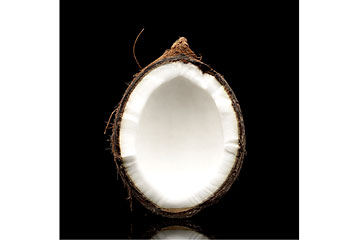
Coconut
(3 of 3)
A few producers are thinking ahead by making the farmer an integral and better-compensated part of the supply chain. When Harmless Harvest started producing coconut water in 2011, the craze was in full swing. To differentiate their brand, founders Justin Guilbert and Douglas Riboud designed production so that raw, fresh juice would be bottled within hours of harvest, deep-frozen, processed without heat treatment and shipped to the U.S. in a few weeks. They tried and failed to set up this tricky system in Brazil, Mexico and Sri Lanka before finding a partner in Thailand. Harmless Harvest pays to get farmers' crops certified as organic and buys those coconuts for as much as double the price of conventional coconuts. "It's in my best interest that a farmer ... gets the best advantage out of my experience with them," says Guilbert.
Investing in relationships with farmers has a long-term payoff too. Serendipol, Dr. Bronner's partner in Sri Lanka, spent months visiting farmers, explaining how switching to organic methods could help raise their yields and incomes. "We built up credibility by offering them a better price, buying consistently and paying immediately," says managing director Gordon De Silva. J.M. Gunarathbanda, a bespectacled 62-year-old, has been supplying coconuts to Dr. Bronner's through Serendipol since 2008. Standing under a heavy, palm-fringed canopy, he says his 600 trees have borne more fruit after he started using compost and he's making more money than when he sold his crop to other factories. He is dismayed, though, that his neighbors have built on their land instead of planting more trees. "Exporting is better," he says. "It's good for the country."
